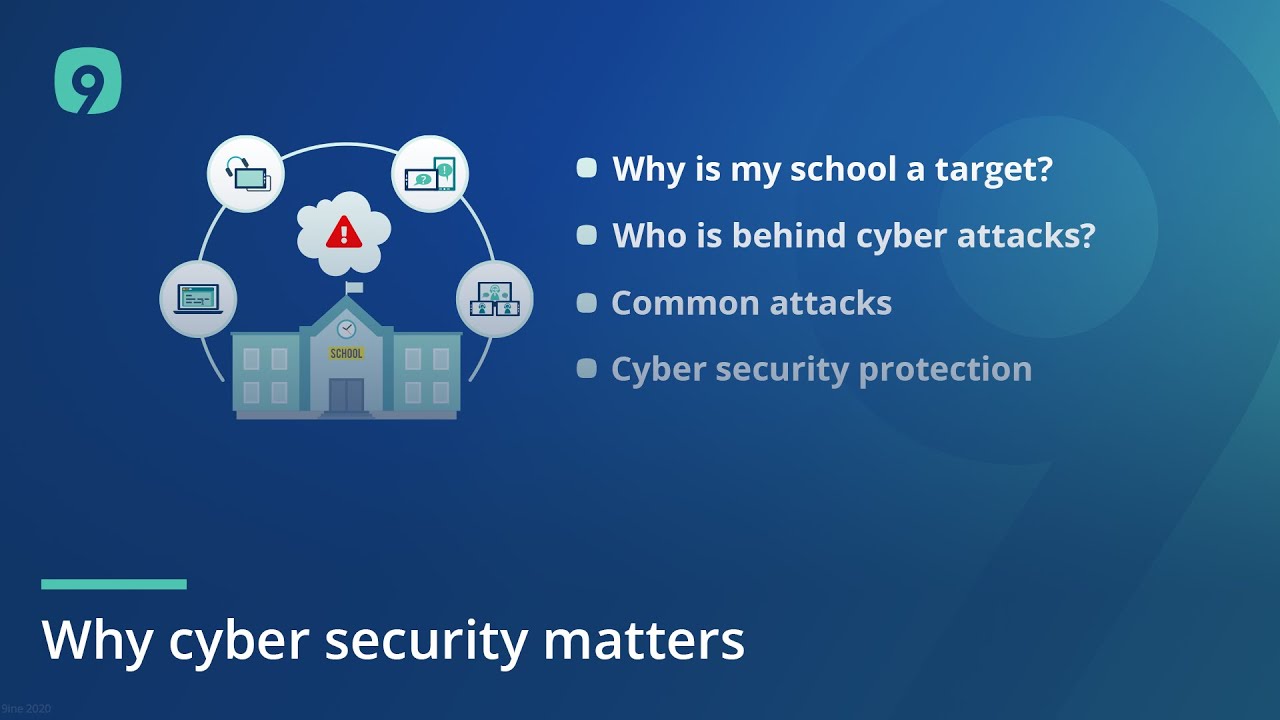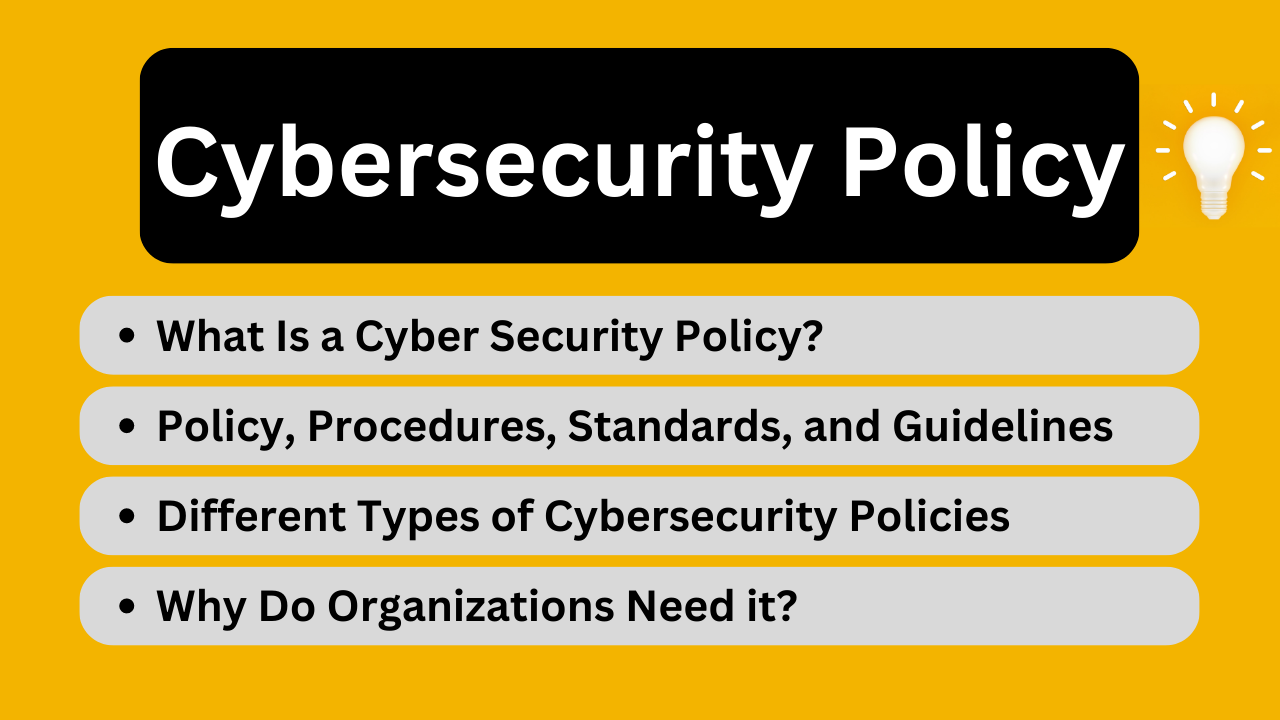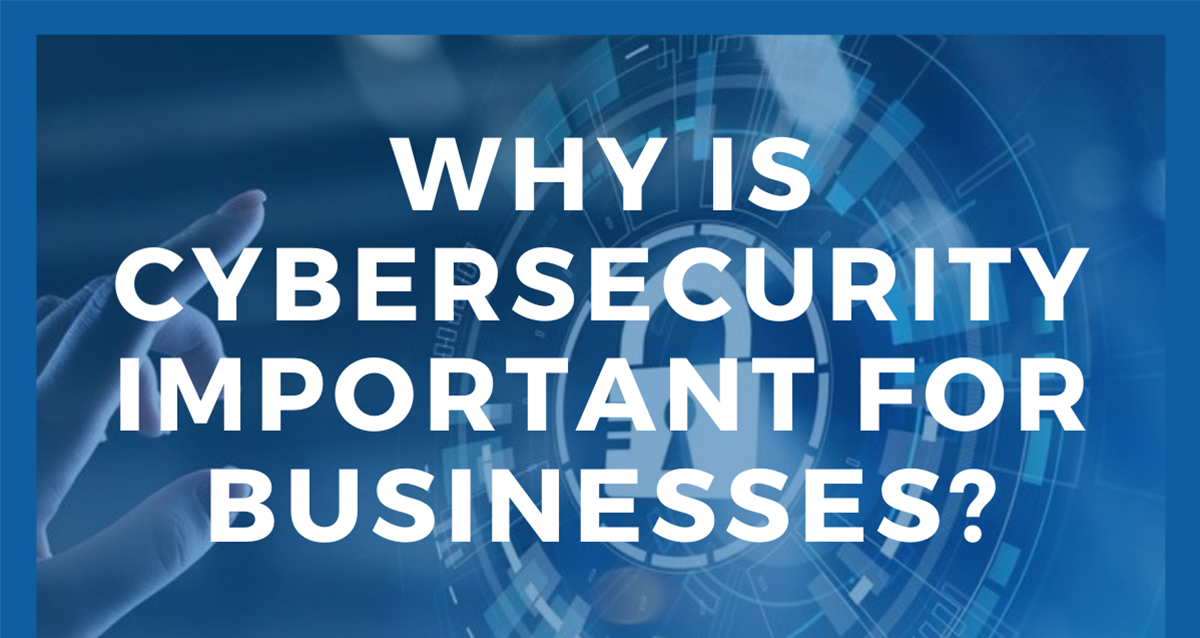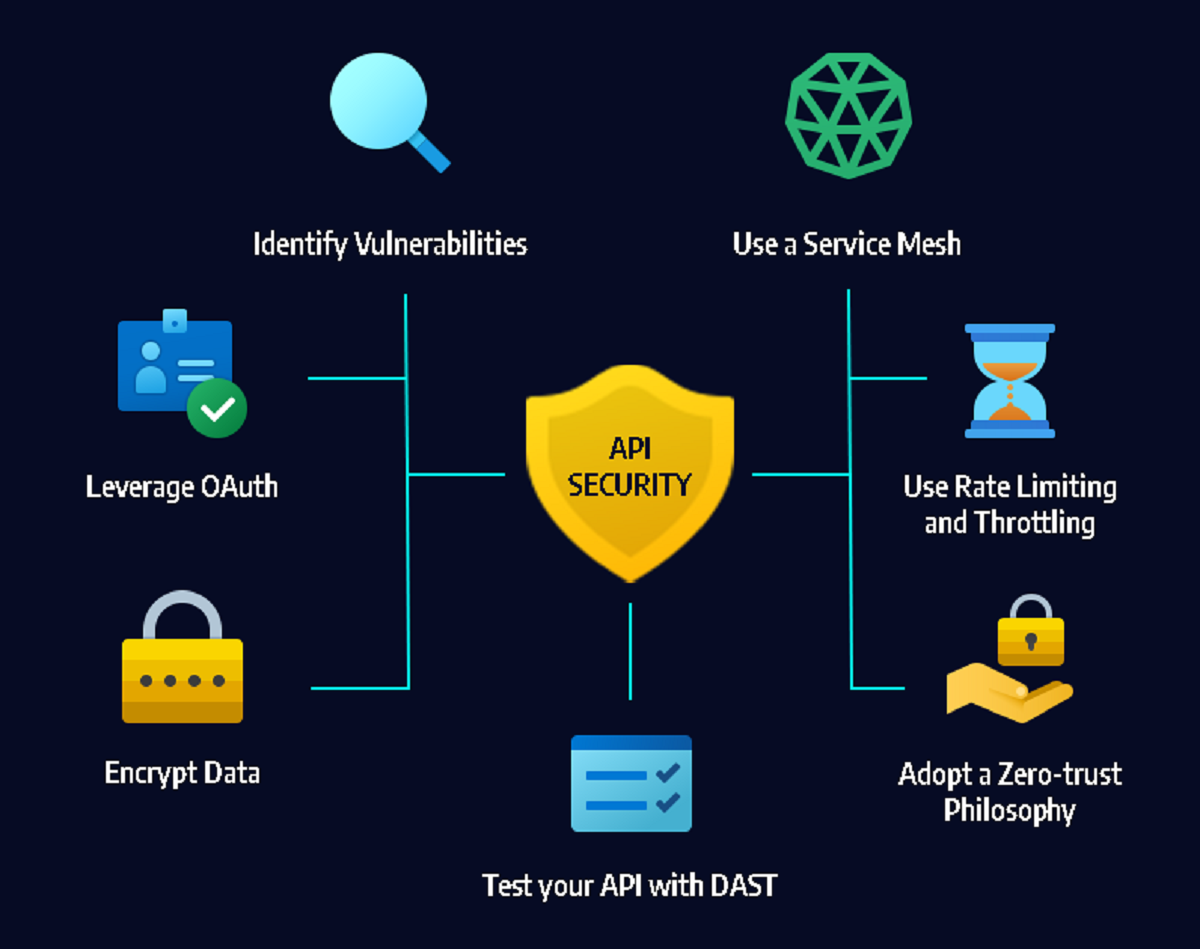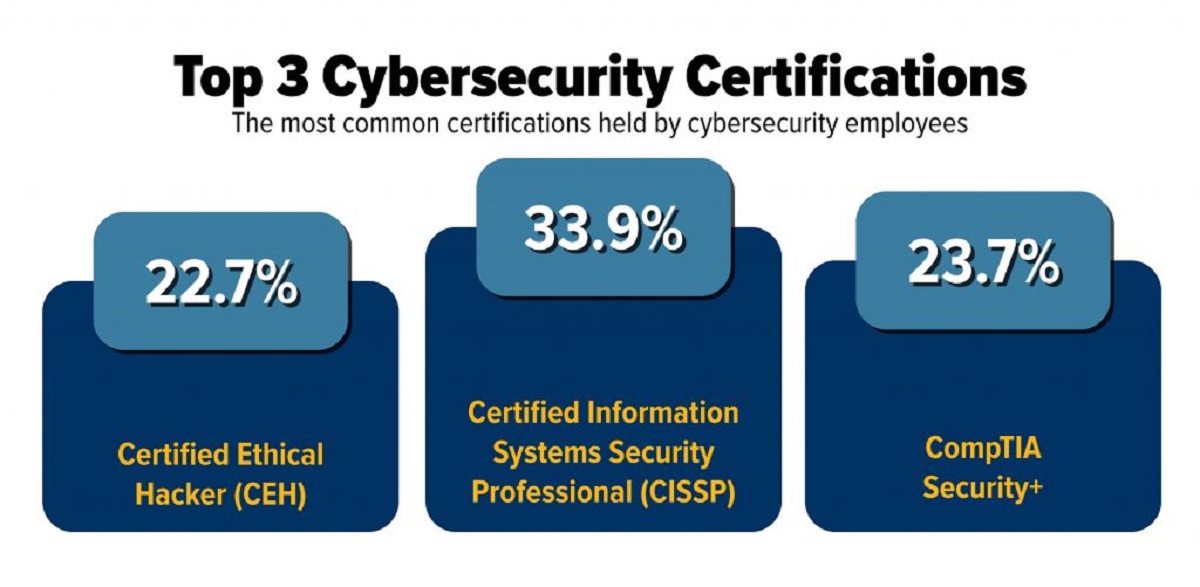Introduction
Welcome to the digital age, where technology has become an integral part of our daily lives. With the evolution of the internet and the increasing reliance on online platforms, the issue of cybersecurity has become more pressing than ever before. From personal data breaches to major corporate hacks, the threats in cyberspace are not to be underestimated.
Cybersecurity refers to the measures taken to protect digital information and systems from unauthorized access, damage, or theft. It encompasses a wide range of technologies, practices, and policies designed to ensure the confidentiality, integrity, and availability of data. In this article, we will delve into the importance of cybersecurity and the reasons why it should not be taken lightly.
As technology continues to advance at a rapid pace, so do the tactics used by cybercriminals. The boundaries between physical and virtual worlds are becoming increasingly blurred, and the potential risks have expanded exponentially. Cyber attacks can lead to devastating consequences, affecting individuals, businesses, and even nations. Therefore, having robust cybersecurity measures in place is crucial to safeguarding our digital lives.
Over the course of this article, we will explore the various aspects of cybersecurity and the impact it has on different areas of our lives. By understanding the risks, financial implications, and potential consequences of neglecting cybersecurity, we can gain a deeper appreciation for its significance. Moreover, we will discuss practical steps that can be taken to enhance cybersecurity and protect ourselves in this interconnected world.
The Growing Importance of Cybersecurity
In today’s digital landscape, where personal information is shared online and critical infrastructure is connected, the importance of cybersecurity cannot be overstated. The rapid digitization of our lives has brought convenience and efficiency, but it has also increased the vulnerability of our data and systems.
With the proliferation of internet-enabled devices, cybercriminals have more entry points to exploit. From smartphones and laptops to smart home systems and wearable technology, each device presents a potential vulnerability that can be targeted. As a result, the need for robust cybersecurity measures has become paramount.
One of the key reasons for the growing importance of cybersecurity is the exponential increase in cyber threats. Gone are the days when hackers were lone individuals working in isolation. Today, cybercriminals operate in highly organized and sophisticated networks, deploying advanced techniques to breach security defenses.
These cyber threats come in various forms, including malware, phishing attacks, ransomware, and data breaches. They can cause significant damage to individuals, businesses, and even governments. The financial losses incurred from cyber attacks can be astronomical, not to mention the reputational damage and loss of customer trust that often follow.
The rising threat landscape has also prompted governments and regulatory bodies to take action in the realm of cybersecurity. Laws and regulations are being put in place to ensure the protection of sensitive data and to hold organizations accountable for any breaches. Compliance with cybersecurity standards has become a priority for businesses, and failure to adhere to these regulations can result in hefty fines and legal consequences.
Furthermore, the interconnectedness of our world means that a cyber attack on one entity can have ripple effects across multiple sectors. Critical infrastructure, such as power grids, transportation systems, and healthcare facilities, relies heavily on interconnected networks. An attack on these systems could have severe consequences, disrupting essential services and potentially endangering lives.
Overall, the growing importance of cybersecurity stems from the fact that our digital lives are so deeply intertwined with our physical existence. The protection of personal data, the integrity of financial transactions, and the security of critical infrastructure are all at stake. As technology continues to advance, so too must our efforts to stay one step ahead of cybercriminals.
The Risks of Cyber Attacks
Cyber attacks pose significant threats to individuals, businesses, and governments alike. The consequences of these attacks can be devastating, both financially and in terms of personal privacy and security. Understanding the risks associated with cyber attacks is essential in developing effective cybersecurity strategies.
One of the primary risks of cyber attacks is the unauthorized access to sensitive information. Hackers seek to gain access to personal data, such as social security numbers, financial information, and login credentials. This stolen information can then be used for identity theft, financial fraud, or even sold on the dark web. The potential impact on individuals’ lives and finances is immense.
For businesses, the risks of cyber attacks can be even more far-reaching. A successful attack can result in the compromise of customer data, intellectual property theft, or operational disruptions. The reputational damage caused by a data breach can lead to loss of customer trust and, subsequently, a decline in revenue. Moreover, businesses may face legal consequences and regulatory fines if they are found to be negligent in protecting customer data.
Another significant risk is the threat of ransomware attacks. Ransomware is a type of malicious software that encrypts a victim’s files and demands a ransom to regain access. This form of cyber attack can cause significant disruptions to businesses and individuals, resulting in downtime, financial losses, and potential data loss if the ransom is not paid or fails to decrypt the files.
In addition to financial and personal consequences, cyber attacks can also have a detrimental impact on national security. State-sponsored attacks can target critical infrastructure, government systems, and defense networks. The compromise of these systems can not only disrupt essential services but also have implications for national defense and intelligence. The need to protect against cyber attacks has become crucial for safeguarding the security of nations and their citizens.
Furthermore, the risks of cyber attacks are not limited to specific industries or sectors. Small and medium-sized businesses are often targeted due to their limited resources and less robust security measures. Individuals are also at risk, as cybercriminals continuously develop new methods to exploit vulnerabilities in personal devices and online platforms.
It is important to recognize that the risks of cyber attacks are continuously evolving. As technology advances, so do the tactics and techniques employed by hackers. Staying informed and proactive in implementing strong cybersecurity measures is crucial in mitigating these risks and protecting against potential attacks.
The Financial Impact of Cyber Attacks
Cyber attacks have not only become more prevalent but also more costly. The financial impact of these attacks can be staggering, affecting both individuals and businesses. Understanding the economic consequences of cyber attacks is essential in quantifying the risks and allocating resources to cybersecurity efforts.
For businesses, the financial repercussions of a cyber attack can be extensive. The costs include mitigating the attack, restoring systems and data, and managing the fallout in terms of reputational damage. This can involve significant investments in IT security measures, hiring cybersecurity experts, and conducting forensic investigations to identify the root cause of the attack.
Furthermore, businesses may face legal and regulatory consequences following a cyber attack. Depending on the industry and jurisdiction, companies may be held liable for any breaches of customer data and be subject to fines or penalties. Legal fees and potential lawsuits can further add to the financial burden.
The impact on revenue can be substantial. A data breach can lead to customer loss due to a loss of trust and reputation. A study conducted by the Ponemon Institute found that the average cost of a data breach for companies in the United States was $8.19 million in 2020. This includes the expenses related to detection, response, and notification, as well as indirect costs such as customer churn and brand damage.
On an individual level, the financial impact of cyber attacks can also be significant. Falling victim to online scams, identity theft, or fraudulent transactions can result in financial losses that are difficult to recover. The time and effort required to rectify the consequences of a cyber attack, such as restoring credit or disputing unauthorized charges, can add to the financial burden.
Moreover, the broader economic impact of cyber attacks should not be overlooked. A study by the Center for Strategic and International Studies estimates that cybercrime costs the global economy over $1 trillion annually. This includes not only the direct costs borne by businesses and individuals but also the indirect costs of disruption to critical infrastructure, loss of intellectual property, and diminished consumer confidence.
It is clear that the financial impact of cyber attacks extends beyond immediate losses. The long-term effects can be far-reaching, causing damage to businesses, individuals, and the overall economic landscape. This highlights the importance of investing in robust cybersecurity measures to mitigate the financial risks associated with cyber attacks.
Protecting Personal Data and Privacy
In today’s digital world, personal data has become an incredibly valuable commodity. From social media platforms to online shopping websites, individuals are constantly sharing their personal information. However, this convenience comes with the inherent risks of data breaches and privacy infringements.
One of the primary reasons to prioritize cybersecurity is to protect personal data and privacy. Every time we provide our information online, such as our names, addresses, financial details, or even browsing habits, we are entrusting organizations with our sensitive data. Cyber attacks that result in the theft or compromise of personal data can lead to identity theft, financial fraud, and other forms of abuse.
Moreover, protecting personal data is not just about preventing external breaches. It also involves ensuring that organizations handle and store this information responsibly. Data protection regulations, such as the General Data Protection Regulation (GDPR), have been put in place to safeguard individuals’ privacy rights and promote transparency in data processing practices.
Implementing strong cybersecurity measures is essential for organizations to demonstrate their commitment to protecting personal data and complying with these regulations. This includes encryption of data, regular security audits, and employee training on data handling and privacy best practices.
Individuals also play a role in protecting their own personal data. Practicing good cybersecurity habits, such as using strong passwords, being cautious of phishing emails, and regularly updating software, can go a long way in preventing unauthorized access to personal information.
Furthermore, privacy concerns extend beyond personal data. The Internet of Things (IoT) revolution has connected devices in our homes, cars, and even wearables. While the convenience of interconnected devices is undeniable, it also presents new privacy challenges. Protecting personal privacy in the context of IoT requires securing these devices, being mindful of the data they collect, and understanding how that data is used and shared.
Overall, protecting personal data and privacy should be a top priority in the digital age. Individuals must be vigilant in sharing their information and organizations must invest in robust cybersecurity practices to safeguard personal data from cyber attacks. By doing so, we can maintain control over our personal information, reduce the risks of identity theft and fraud, and preserve our right to privacy in an increasingly connected world.
Safeguarding Intellectual Property
Intellectual property (IP) is the product of creativity and innovation, such as inventions, designs, software code, and artistic works. It represents a significant asset for individuals, businesses, and economies as a whole. However, in the digital age, protecting intellectual property has become increasingly challenging due to the ease of unauthorized duplication and distribution.
Cyber attacks pose a significant threat to intellectual property, with hackers seeking to steal or exploit valuable proprietary information. The theft of trade secrets, patented technologies, or copyrighted materials can result in significant financial losses and undermine the competitive advantage of businesses.
One of the key aspects of safeguarding intellectual property is implementing strong cybersecurity measures. Organizations should employ methods such as encryption, access controls, and secure storage to protect valuable IP assets from unauthorized access or theft. Regular monitoring, vulnerability assessments, and intrusion detection systems can help detect and respond to potential cyber threats before they result in IP loss.
Additionally, educating employees and implementing strict policies regarding intellectual property protection is crucial. This includes establishing non-disclosure agreements (NDAs), implementing secure processes for sharing IP internally and with trusted partners, and raising awareness about the risks of social engineering and phishing attacks that may be used to gain unauthorized access to IP.
Beyond organizational efforts, governments also play a vital role in protecting intellectual property. Laws and regulations are in place to ensure the legal rights and enforcement of IP protection. Collaborative efforts between governments, law enforcement agencies, and industry organizations are essential in combating cyber threats and creating a supportive environment for innovation.
Partnerships and collaborations between businesses can also aid in the protection of intellectual property. Sharing best practices, threat intelligence, and collectively addressing common vulnerabilities can strengthen the collective defense against cyber attacks aimed at IP theft.
Furthermore, individuals who create and own intellectual property must be proactive in understanding the risks and taking steps to protect their creations. Registering patents, trademarks, or copyrights can provide legal protection and enable stronger enforcement against any infringements. Maintaining backups of digital assets and securing them with strong passwords is also important in preventing unauthorized access.
In today’s interconnected and digitized world, the protection of intellectual property is crucial for fostering innovation, economic growth, and competition. By placing a strong emphasis on cybersecurity and implementing proactive measures, we can safeguard valuable IP assets, protect the rights of creators and innovators, and continue to drive progress in the global economy.
The Role of Cybersecurity in National Security
Cybersecurity plays a critical role in ensuring national security in the increasingly interconnected world we live in today. As nations rely heavily on technology for communication, defense, and critical infrastructure, protecting cyberspace from malicious activities has become a matter of utmost importance.
Cyber threats targeting governments’ systems and critical infrastructure pose significant risks to national security. Nation-states, terrorist organizations, and hacktivist groups can launch cyber attacks with the potential to disrupt essential services, compromise sensitive information, and even cause physical harm.
One area where cybersecurity plays a pivotal role in national security is in the defense sector. Protection of military systems, defense networks, and classified information is crucial to maintaining a nation’s military capabilities. Cyber attacks target these systems to gain intelligence, disrupt operations, or degrade a nation’s military capabilities. A robust cybersecurity framework is essential to detect and defend against such attacks.
Additionally, governments rely on cyberspace for communication, intelligence gathering, and diplomatic efforts. Protecting government networks from cyber attacks is vital to maintain the integrity and confidentiality of sensitive information related to national defense, diplomacy, and governance.
Critical infrastructure sectors, such as energy, transportation, healthcare, and finance, are increasingly dependent on interconnected systems. Disruption of these sectors through cyber attacks can have severe consequences for national security and public safety. Safeguarding critical infrastructure from cyber threats requires strong cybersecurity measures, including continuous monitoring, threat intelligence sharing, and incident response planning.
Moreover, securing supply chains is crucial for national security as it ensures the integrity and authenticity of goods and services. Supply chain attacks, where compromised components or software are introduced into the manufacturing process, can have far-reaching implications. Implementing cybersecurity measures across the supply chain is vital to prevent these attacks and protect national interests.
International cooperation and collaboration are crucial in the realm of cybersecurity and national security. Sharing threat intelligence, strengthening defense capabilities, and establishing norms of responsible behavior in cyberspace are important in deterring cyber attacks and promoting a secure global digital environment.
Investing in cybersecurity research and development is also essential for national security. Continuously advancing technology and tactics employed by cyber threat actors necessitate innovation and adaptation in defense mechanisms. Governments and organizations must stay at the forefront of cybersecurity practices to effectively protect against evolving threats.
Overall, cybersecurity has emerged as a fundamental component of national security. It is not merely a technical concern but a strategic imperative. By prioritizing and investing in cybersecurity initiatives, nations can strengthen their defense, protect critical infrastructure, and safeguard the welfare and interests of their citizens.
The Importance of Cybersecurity in Healthcare
In the modern era of digital healthcare, the importance of cybersecurity cannot be overstated. The healthcare industry is increasingly reliant on technology to store, process, and transmit sensitive patient information. Protecting this data from cyber threats is vital to maintain patient privacy, ensure continuity of care, and safeguard the integrity of healthcare systems.
Patient privacy is one of the primary concerns in healthcare. Medical records contain highly sensitive information, including personal details, medical history, and treatment plans. A breach of this data can lead to identity theft, financial fraud, or unauthorized disclosure of intimate medical information. Cyber attacks targeting healthcare organizations aim to gain access to this valuable data for various nefarious purposes.
Furthermore, healthcare providers and facilities rely heavily on technology for critical operations. Disruption of healthcare systems due to cyber attacks can have severe consequences for patient care. It can result in substantial operational downtime, delays in treatment, and disruptions to emergency services. Maintaining the availability and reliability of healthcare systems is crucial to ensure the well-being of patients.
Cybersecurity in healthcare also plays a significant role in the prevention of medical fraud and insurance scams. Fraudulent activities, such as the creation of fictitious patient records, unauthorized billing, or alteration of medical information, can have profound financial implications for both healthcare providers and patients. Strong cybersecurity measures can help detect and prevent these fraudulent activities, ensuring the integrity and accuracy of medical data.
The rise of telehealth and remote patient monitoring has further emphasized the importance of cybersecurity in healthcare. These technologies enable the delivery of healthcare services and collection of patient data from remote locations. Protecting patient data during transmission and ensuring the security of connected devices and networks are critical to maintaining the trust and effectiveness of remote healthcare services.
Additionally, cybersecurity is crucial in protecting medical devices from unauthorized access and tampering. Connected medical devices such as pacemakers, insulin pumps, and remote monitoring systems can be vulnerable to cyber attacks. Ensuring the security of these devices is paramount to prevent potential harm to patients and maintain the integrity of healthcare delivery.
It is also important to note that healthcare organizations are often targeted by cybercriminals due to the perceived value of the data they possess. The potential financial gain from selling medical information on the black market makes healthcare a lucrative target. Implementing robust cybersecurity measures can help mitigate these risks and protect the sensitive data held by healthcare providers.
Overall, the importance of cybersecurity in healthcare cannot be ignored. It is essential to protect patient privacy, ensure the availability of critical healthcare systems, prevent medical fraud, and maintain the integrity of medical devices. By prioritizing cybersecurity efforts, healthcare organizations can secure patient data, enhance healthcare delivery, and maintain the trust and confidence of patients.
Cybersecurity in the Workplace
Cybersecurity is not solely the responsibility of dedicated IT professionals but also a shared responsibility in the workplace. With the increasing reliance on technology for day-to-day operations, ensuring a robust cybersecurity environment is critical to protect sensitive corporate data, mitigate risks, and maintain business continuity.
One of the key aspects of cybersecurity in the workplace is raising awareness and educating employees about best practices and potential threats. Training programs and regular updates on cybersecurity protocols can help employees recognize phishing emails, avoid clicking on suspicious links, and understand the importance of strong passwords and secure data handling. By promoting a culture of cybersecurity, organizations can empower employees to be vigilant and active participants in protecting sensitive information.
Implementing strong access controls and authentication mechanisms is crucial to limiting unauthorized access to corporate systems and data. Two-factor authentication, strong password policies, and regular access reviews can significantly reduce the risk of unauthorized individuals gaining access to sensitive information.
Additionally, organizations must prioritize the secure handling of sensitive data throughout its lifecycle. This includes data encryption, implementing secure file transfer protocols, and the safe disposal of outdated or unnecessary data. Employee awareness and adherence to data handling policies is crucial in preventing data breaches and protecting proprietary information.
Regular system updates and patch management play a vital role in maintaining the security of workplace networks and systems. Applying security patches promptly can address vulnerabilities and prevent potential exploitation by cybercriminals. Organizations must also utilize robust antivirus and anti-malware solutions to detect and mitigate threats proactively.
Furthermore, organizations should establish incident response plans to quickly and effectively respond in the event of a cyber attack or data breach. This includes timely identification and containment of the incident, communication with stakeholders, and conducting thorough forensic investigations to understand the root cause and implement necessary remediation measures.
Collaboration with third-party vendors and partners is also critical in ensuring cybersecurity in the workplace. Implementing strong contractual agreements, conducting regular security audits, and assessing the cybersecurity practices of vendors can help mitigate risks associated with outsourcing or collaborating on technological solutions.
Compliance with industry-specific regulations and data protection laws is vital in maintaining a secure workplace environment. Organizations must stay up-to-date with the evolving regulatory landscape and ensure they adhere to the necessary cybersecurity standards and requirements. This includes privacy regulations such as the General Data Protection Regulation (GDPR) and industry-specific standards such as the Payment Card Industry Data Security Standard (PCI DSS).
Overall, cybersecurity in the workplace is an ongoing commitment that requires a combination of technology, processes, and employee awareness. By implementing robust cybersecurity measures, raising employee awareness, and staying vigilant against emerging threats, organizations can protect sensitive data, mitigate risks, and maintain a secure workplace environment.
The Consequences of Neglecting Cybersecurity
Neglecting cybersecurity can have severe consequences for individuals and organizations alike. The risks associated with cyber attacks and data breaches are becoming increasingly prevalent and can result in financial, reputational, and legal repercussions.
One of the primary consequences of neglecting cybersecurity is the financial impact. Cyber attacks can lead to significant financial losses for organizations. The cost of recovering from an attack, including incident response, system restoration, and legal fees, can be exorbitant. Organizations may also face regulatory fines and penalties for failing to protect customer data in accordance with data protection laws. Moreover, the loss of business due to reputational damage and customer distrust further compounds the financial consequences.
The reputational damage caused by a data breach or cyber attack can be long-lasting and difficult to recover from. Organizations that fail to protect customer data and suffer a breach often face public scrutiny, loss of credibility, and a decline in customer trust. Rebuilding a damaged reputation can take years of dedicated effort, and some organizations may never fully regain the trust they once enjoyed.
Furthermore, organizations that neglect cybersecurity may face legal consequences. In many jurisdictions, data protection laws mandate that organizations protect customer data and notify affected individuals in the event of a breach. Failure to comply with these laws can result in fines, lawsuits, and potential damage to the organization’s standing in the eyes of the law.
For individuals, neglecting cybersecurity can have personal ramifications. Falling victim to identity theft or financial fraud can result in significant financial loss, damage to credit ratings, and a lengthy process to restore one’s identity. Additionally, the emotional distress and loss of privacy caused by the unauthorized access to personal data can have long-term effects on individuals’ well-being.
The consequences extend beyond financial and reputational harm. Attacks on critical infrastructure, such as power grids, transportation systems, and healthcare facilities, can pose serious risks to public safety. Lives can be endangered, essential services can be disrupted, and whole communities can be affected by the consequences of neglecting cybersecurity in these vital sectors.
Moreover, the regulatory landscape is evolving, and governments are increasing their focus on cybersecurity. Organizations that neglect cybersecurity may find themselves in violation of laws and regulations, facing penalties, fines, and legal action. Compliance with cybersecurity standards and best practices is not only essential for mitigating risk but also for maintaining legal and regulatory compliance.
In summary, neglecting cybersecurity can have dire consequences for individuals and organizations. The financial impact, reputational damage, legal consequences, and risks to public safety make it imperative for organizations and individuals to prioritize and invest in robust cybersecurity measures. By doing so, they can protect sensitive data, maintain trust, and mitigate the risks associated with cyber threats.
How to Enhance Cybersecurity
Enhancing cybersecurity requires a proactive approach that involves implementing a combination of technical measures, organizational practices, and employee awareness. By adopting a comprehensive approach, individuals and organizations can strengthen their security posture and better protect themselves against cyber threats.
One of the first steps to enhancing cybersecurity is to conduct a thorough assessment of the existing security landscape. This includes identifying vulnerabilities, evaluating current cybersecurity measures, and understanding potential risks. Conducting regular security audits and risk assessments can provide valuable insights into areas that require improvement.
Implementing strong access controls is vital in preventing unauthorized access to systems and sensitive information. This includes multifactor authentication, strong password policies, and role-based access controls. Regular access reviews should also be conducted to ensure that individuals have the appropriate level of access based on their roles and responsibilities.
Keeping systems and software up to date is crucial to address identified vulnerabilities. Regularly applying security patches and updates ensures that known vulnerabilities are mitigated. Automated patch management systems can assist in streamlining this process and reducing the risk of unpatched systems becoming targets for cyber attacks.
Utilizing robust antivirus and anti-malware solutions is essential in detecting and preventing malicious software from infecting systems. This includes deploying real-time scanning, regular virus definition updates, and proactive monitoring for anomalous behaviors.
Education and training are key components in enhancing cybersecurity. Employees should receive regular awareness training on recognizing social engineering techniques, phishing attacks, and other common cyber threats. Promoting a culture of cybersecurity awareness, where employees are encouraged to report suspicious activities and adhere to security policies, can significantly reduce the risk of successful cyber attacks.
Regular data backups, both offline and offsite, are critical in mitigating the impact of ransomware attacks or other forms of data loss. Implementing a robust backup and recovery plan ensures that in the event of a cyber attack, data can be restored quickly and effectively.
Establishing an incident response plan is crucial in handling and mitigating the impact of cyber attacks. This includes defining roles and responsibilities, establishing communication channels, and conducting regular drills and simulations to test the effectiveness of the plan. A well-prepared and practiced incident response plan can significantly minimize the damage caused by cyber attacks.
Collaboration and information sharing within the industry and with cybersecurity experts can provide valuable insights and threat intelligence. Participating in forums, attending conferences, and staying up to date with emerging trends can help organizations stay ahead of the evolving cybersecurity landscape.
Finally, seeking external expertise and engaging with cybersecurity professionals can provide an extra layer of security. Conducting periodic vulnerability assessments, penetration testing, and security audits can help identify weaknesses and validate the effectiveness of existing security measures.
Enhancing cybersecurity requires a proactive and multi-faceted approach. By adopting a combination of technical precautions, implementing best practices, and fostering a culture of cybersecurity awareness, individuals and organizations can strengthen their defenses and better protect themselves against the ever-evolving threat landscape.
Conclusion
Cybersecurity has emerged as a critical concern in today’s interconnected world. The growing dependence on technology, the increasing sophistication of cyber threats, and the potential consequences of neglecting cybersecurity highlight the importance of prioritizing and enhancing security measures.
Throughout this article, we have explored various aspects of cybersecurity, including the risks of cyber attacks, the financial impact, and the protection of personal data and privacy. We have also discussed the role of cybersecurity in national security, healthcare, and the workplace. Neglecting cybersecurity can lead to severe consequences, such as financial losses, reputational damage, legal consequences, and risks to public safety.
However, there are steps that individuals and organizations can take to enhance cybersecurity. Implementing strong access controls, regular system updates, and robust antivirus solutions are essential technical measures. Education and training, promoting a culture of cybersecurity awareness, and establishing incident response plans are crucial organizational practices. Collaboration, information sharing, and seeking external expertise can provide additional layers of security.
It is important to remember that cybersecurity is an ongoing commitment. The threat landscape is constantly evolving, and organizations must stay vigilant and adapt their security measures accordingly. By prioritizing cybersecurity and staying proactive, individuals and organizations can protect sensitive data, maintain trust, and mitigate the risks associated with cyber threats.
In conclusion, cybersecurity is not just a matter of technology or compliance; it is a critical component for protecting individuals, businesses, governments, and the broader digital ecosystem. By collectively prioritizing and investing in robust cybersecurity measures, we can create a safer and more secure digital environment for all.







